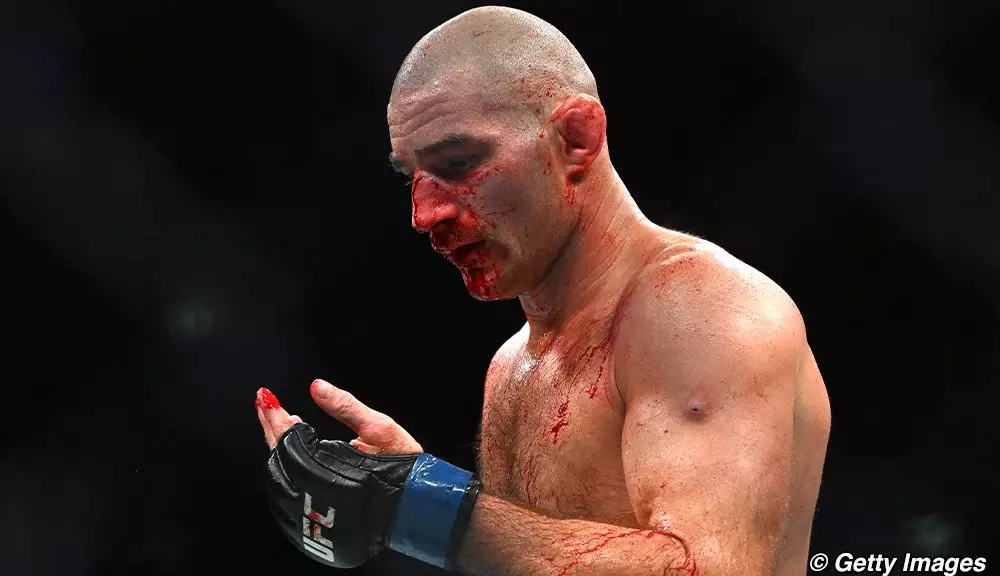The highly anticipated rematch at UFC 312 between Sean Strickland and Dricus Du Plessis left fans and analysts scratching their heads. Strickland, the former middleweight champion, was unable to reclaim his title in a contest that showcased his subpar performance, much to the disappointment of his coach, Eric Nicksick. Strickland’s lack of intensity and adaptation during the fight raised questions about his motivation and approach to the bout.
When Sean Strickland stepped into the Octagon for the title rematch against Dricus Du Plessis at Qudos Bank Arena in Sydney, expectations were sky-high. The narrative leading up to the fight had promised a clash of styles and an intense battle for dominance in the middleweight division. However, what transpired was a stark departure from those expectations. Strickland failed to capitalize on his chance to reclaim the title, suffering a unanimous decision loss that left him on the defensive throughout most of the match.
Post-fight analysis revealed a dismal performance from Strickland, with Nicksick describing his fighter as “uninspired” and seemingly in a “sleepwalking” state. For a champion who previously fought with resilience and strategy, this display was alarming. Whether it was a lack of preparation or an inability to adapt to fight dynamics, it ultimately resulted in a disappointing outcome.
Nicksick’s frustration resonated through the media as he reflected on Strickland’s performance. He communicated a growing urgency between rounds, sensing that they were losing their hold on the fight. Strickland’s ability to process this feedback, however, appeared ineffective, raising issues about coaching dynamics and athlete responsiveness. As a coach, Nicksick clearly felt the pressure of the moment. A careful balance exists between guiding an athlete and allowing them the space to operate instinctively, but in this case, Strickland’s inability to adapt to Nicksick’s strategic advice was glaring.
The analogy drawn by Nicksick likening their approach to a predictable offense in football is particularly insightful. Predictability in combat sports can be lethal, and Strickland’s tactical conservatism played directly into Du Plessis’s game plan. The fight was neither innovative nor dynamic, and thus, Strickland allowed his opponent to dictate the pace and rhythm – a major miscalculation for a title fight.
Strickland’s first encounter with Du Plessis at UFC 297 was a far more competitive bout, even leading to a split decision result favoring Du Plessis. The intensity and engagement displayed in that match starkly contrasts with the performance at UFC 312. Strickland’s failure to bring that same vigor into the rematch left observers perplexed and critical. Even some in the industry were baffled as to why Strickland was granted another title shot so quickly given the circumstances of their last meeting.
For a fighter keen on reclaiming glory, the lack of adjustments and the willingness to put himself at risk were major deficiencies in his approach to the rematch. Strickland’s performance did not reflect the growth or tactical depth expected of a seasoned fighter preparing for a championship bout.
In the aftermath of the fight, Nicksick found himself pondering not just the outcome, but also Strickland’s future in the sport. His challenge to Strickland to evaluate his motivations – whether for financial gain or genuine aspiration for greatness – raises critical considerations about athlete identity in combat sports. Strickland must engage in an introspective process to determine what is most important to him: legacy, title reigns, or financial security.
The stakes are high in the UFC, and fights at this level offer rare opportunities for fighters to etch their names in the annals of history. Nicksick’s sentiments underscore the reality that not all fighters get to touch the proverbial title belt, making it crucial for athletes like Strickland to rise to the occasion when given the chance.
Sean Strickland’s performance at UFC 312 has opened a myriad of discussions regarding fighter mentality, coaching dynamics, and the expectations of high-stakes fights. The lack of engagement and tactical evolution in the rematch against Dricus Du Plessis was not just disappointing for fans but critical for Strickland’s career trajectory. Moving forward, it will be essential for both Strickland and his coaching team to reassess their approach, reinvigorate the training regimen, and understand that each fight represents a unique opportunity to showcase the best version of oneself in the unforgiving arena of mixed martial arts. As the middleweight division moves forward, all eyes will be on whether Strickland can return to form or if he will remain a cautionary tale of promise unfulfilled.

